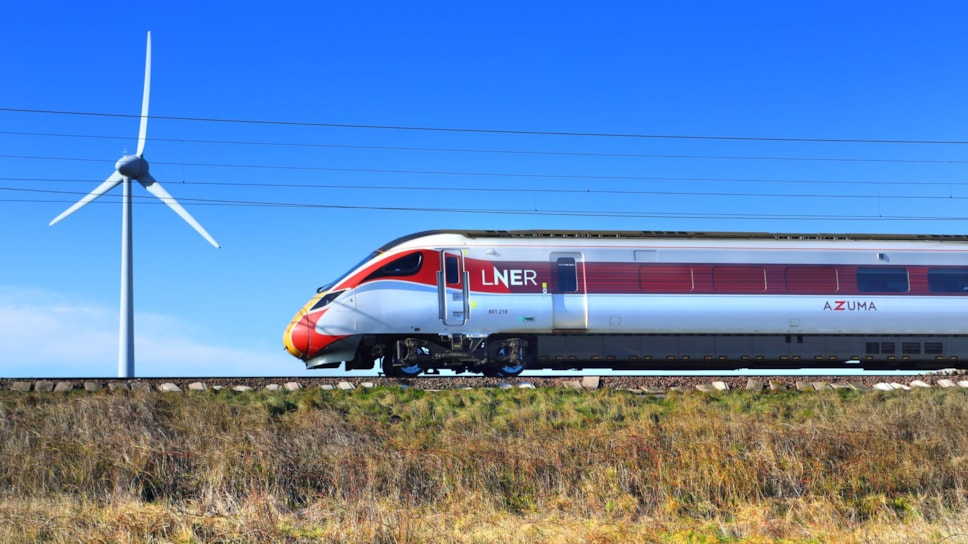
LNER celebrates seventh year under public ownership with record customer numbers
London North Eastern Railway (LNER) is proving the industry leading power of a publicly owned railway by delivering growth, innovation, long-term value and record customer numbers on the East Coast Main Line.
LNER has celebrated its seventh anniversary as a publicly owned operator by delivering a record breaking year and setting a new benchmark for what a modern, accountable railway can achieve.
In total, 23.7 million journeys were made in the last rail year, the highest customer numbers ever recorded on the East Coast Main Line for second year in a row and in the first two periods of 2025, the operator has continued to grow, logging the highest journey figures ever.
Customer numbers isn’t the only area LNER is showing substantial growth. Over the past five years, the economic impact of LNER services and investments has risen from £2.2 billion to £3.11 billion per annum. This means that for every £1 spent operating LNER it creates £3.70 in economic, environmental and social benefits, confirming just how important LNER’s services are to the destinations and communities it serves.
LNER has plans for continued growth, by aiming to deliver 10,000 extra LNER services per year, and 60,000 extra seats per week.
LNER has achieved this significant growth and led the national rail recovery since the pandemic, while substantially reducing its reliance on public subsidy, demonstrating that public ownership can successfully deliver a commercially sustainable, customer-focused railway.
The operator is now widely seen as a shining example of how Great British Railways can work in practice, offering a compelling vision of what reform could look like when driven by public interest, not private profit.
Rail Minister Lord Peter Hendy said: "LNER is making more journeys than ever under public ownership and has become a trailblazer for innovation across our railways from trialling simpler tickets to using antennas to boost WiFi.
"They've proven time and again that public ownership can deliver cutting-edge services that put passengers first, and this is a blueprint that we'll be following as we overhaul the rail network and set up Great British Railways."
The fastest growing long distance operator has also reshaped the travel experience, making rail more attractive. In 2023, it became the first operator to introduce Single Leg Pricing across most of its network, followed by the launch of the ‘70-minute Flex’ ticket – a flexible alternative to outdated off-peak rules. One-Click Delay Repay and app-based food ordering have all made LNER journeys simpler and more responsive to passenger needs.
Beyond operations, LNER has led a cultural shift in the industry, improving accessibility across its operations. It was the first to roll out fully integrated British Sign Language departure boards and offer free period care products across all trains and stations. Its Family Lounges at King’s Cross and York and Passenger Assist Lounge at Newcastle are redefining what inclusive rail travel can look like, while colleague engagement and wellbeing remain at the core of its values.
The public ownership model puts passengers, not profits, first, by enabling train operators to take a longer-term view, away from the short-term constraints of private sector franchises which traditionally only last a few years. This prevents operators from delivering deep and lasting change to operations, services and financial efficiencies. Public ownership provides long-term stability and encourages reform for the passenger, versus short-term delivery for shareholders.
David Horne, Managing Director of LNER, said: “Public ownership has given us the platform to innovate, grow, and focus on delivering for the people and places we serve. We’ve shown that a publicly owned railway can lead the industry - from digital ticketing and greener trains to inclusive travel and simpler fares. I must also credit our colleagues, as I am inspired every day by their passion and commitment to looking after our customers and setting new standards for rail travel.”
LNER recently introduced a big increase in services between London and Bradford, making it even easier for people to visit the region during its year as City of Culture and beyond. The extra 36,000 seats a week will benefit the area by contributing an estimated £4 million per year of economic value.
With more services, better technology, and a continued commitment to people and planet, LNER is not just surviving under public ownership, it is thriving.
